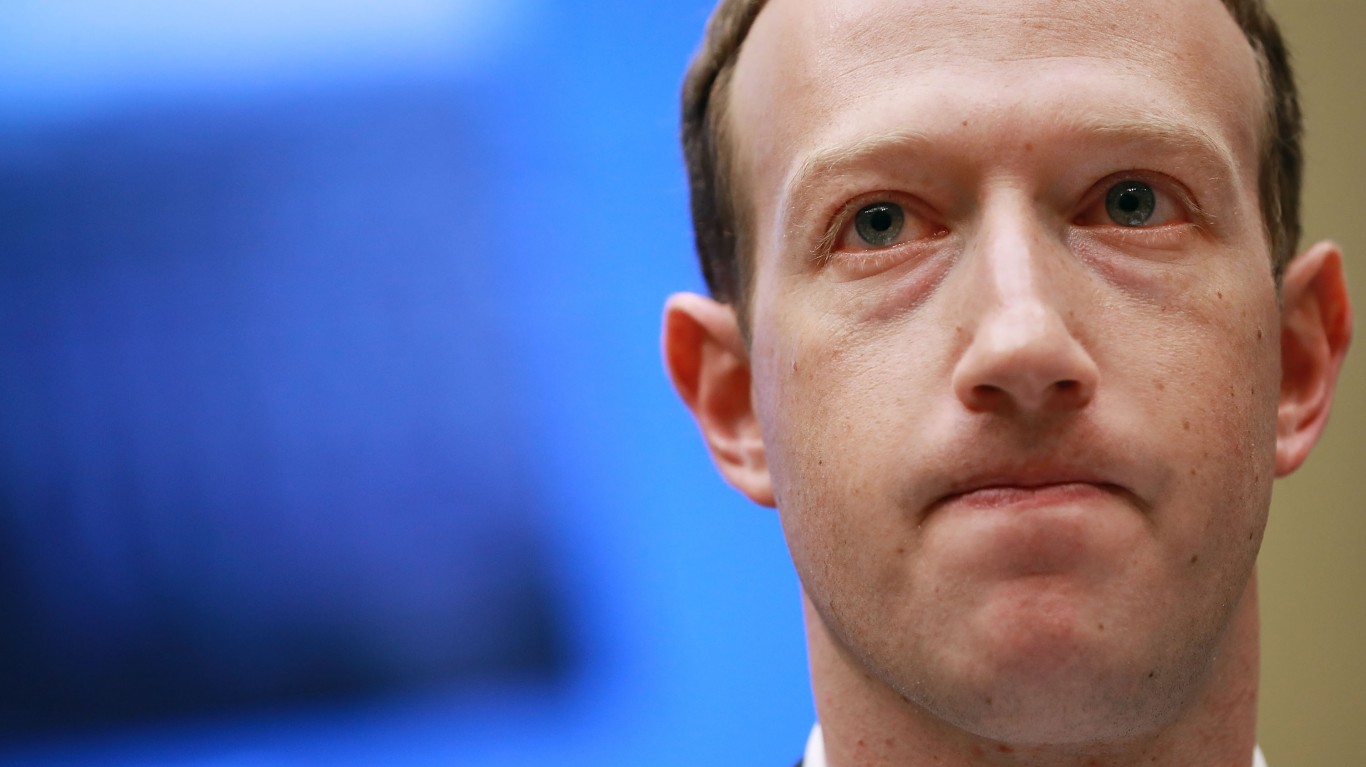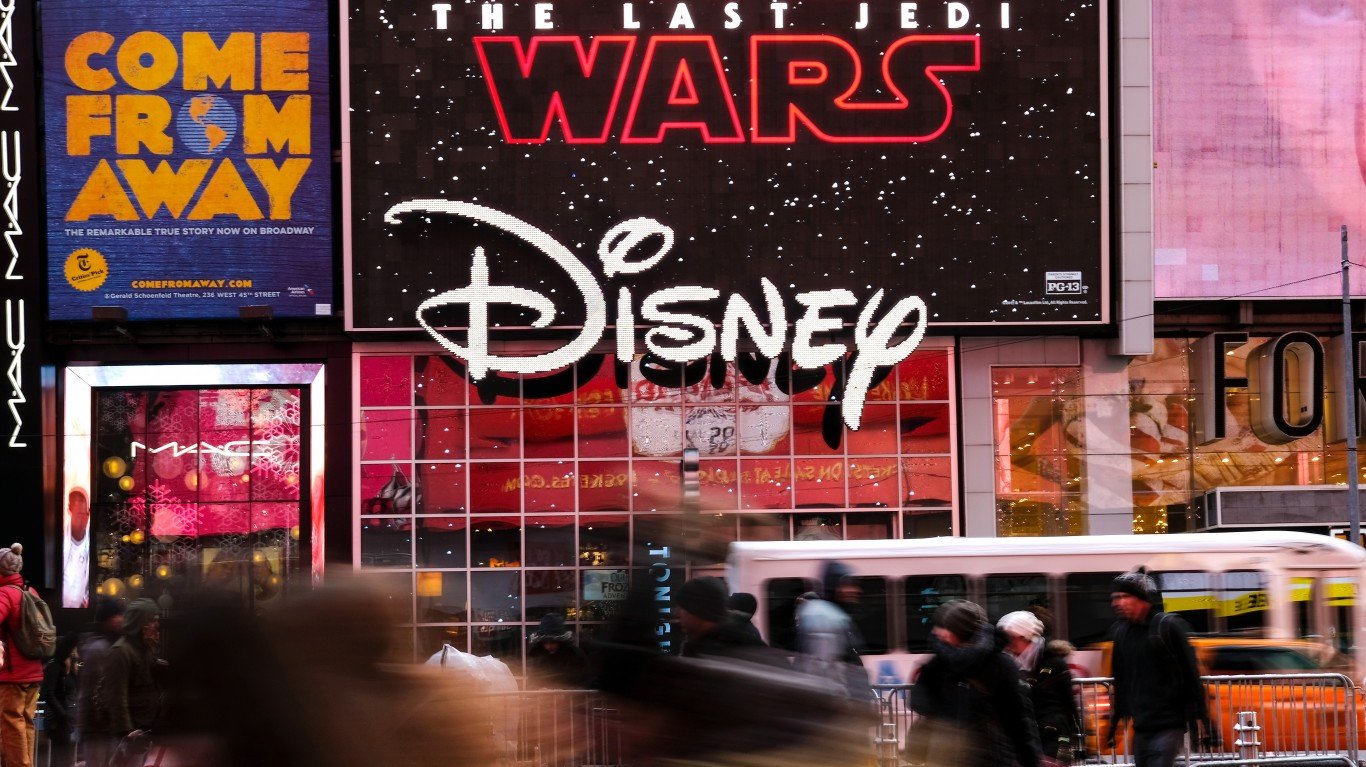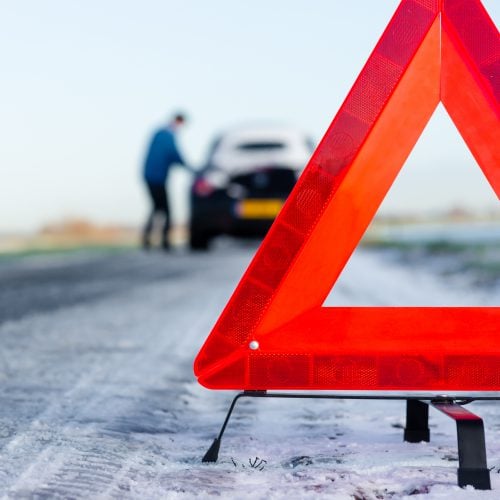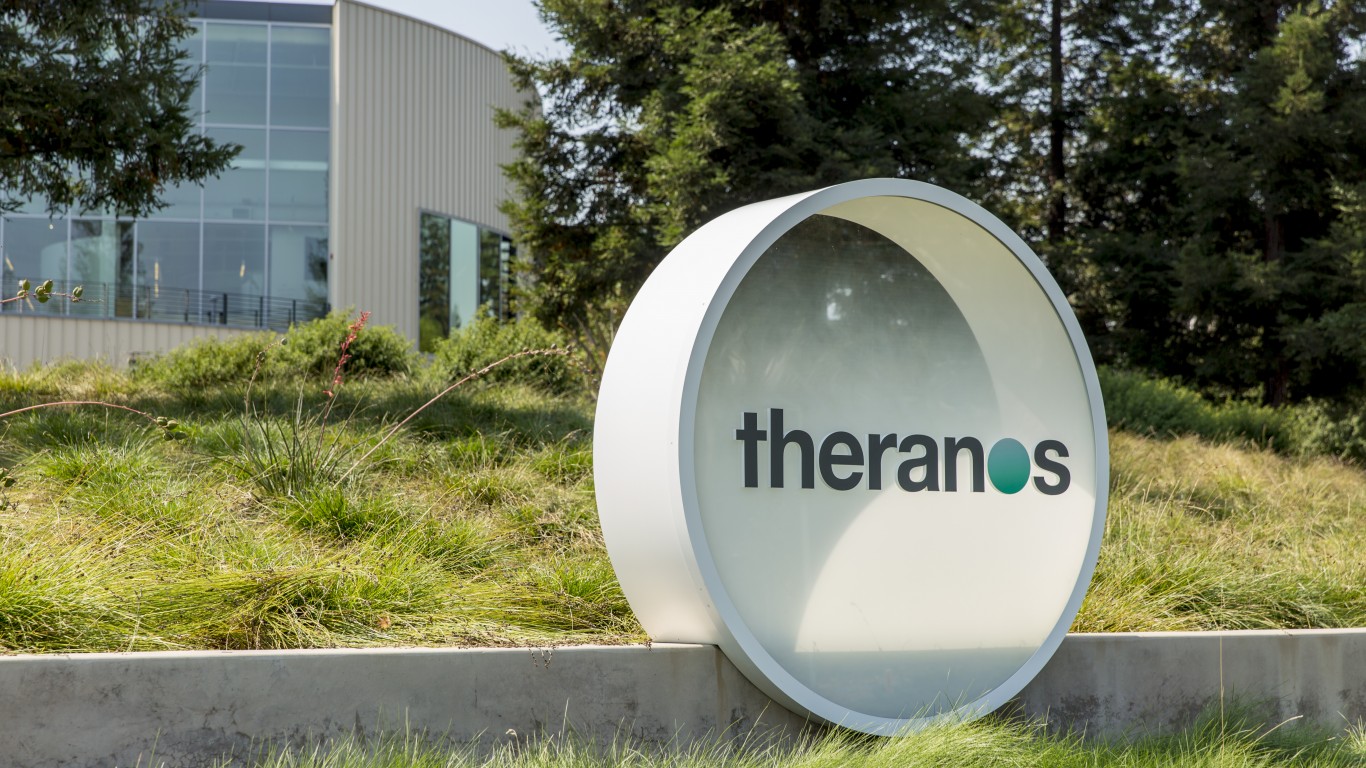

Reputation is perhaps the most valuable intangible asset any given company or organization has. Public perception of a company or brand can affect nearly every aspect of business, beyond simply maintaining or growing a customer base.
Well regarded companies are often able to charge premium prices for their products or services and are well positioned to hire top talent, which can further improve the strength of their brand.
Despite the importance of reputation, particularly in a hyper-competitive global market, many highly-visible companies have caused serious – and even irreparable – harm to their public image in recent years. 24/7 Wall St. reviewed some of the biggest business stories of the last year, as well as public opinion polls, to identify America’s 10 most hated companies. Companies are listed in alphabetical order.
In many cases, a company’s ranking on this list is a reflection of the company’s often short-sighted priorities – profits above all else. In one instance, this strategy led to the ultimate dissolution of a company and a potentially multi-decade prison sentence for the CEO. In other cases, it resulted in production of unsafe products that claimed hundreds and even thousands of lives. Here is a look at some famous brands that will disappear in 2022.
Despite their ranking on this list and widespread criticism of business practices, some of the most hated companies in America maintain a massive customer base. Other companies on this list are hated specifically by certain segments of the population, while remaining well-regarded by others.
Click here to see America’s most hated companies
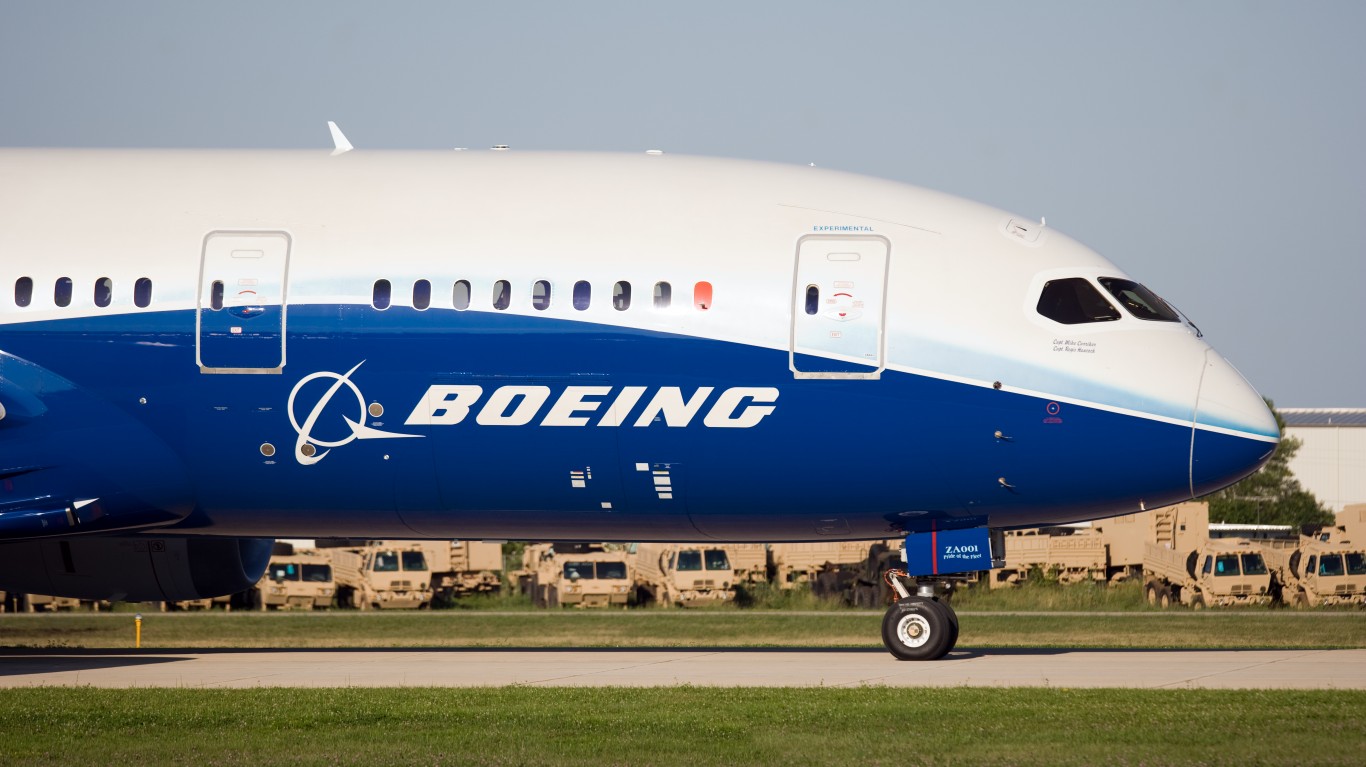
10. Boeing
Two 737 MAX jets crashed in 2018 and 2019, resulting in the deaths of 346 passengers and crew. The accidents were the result of a faulty sensor, which Boeing admitted it knew about a year before the crashes. Though years have passed, Boeing has a long way to go to restore its reputation and regain public trust – and it is now facing additional headwinds.
The company halted deliveries of its 787 Dreamliner following revelations that parts of the aircraft did not meet FAA standards. Some industry experts claim the company’s systems and culture are in need of an overhaul to address an apparent lack of checks and balances and transparency. The company is expected to continue to lose ground to European competitor, Airbus, in 2022.
[in-text-ad]
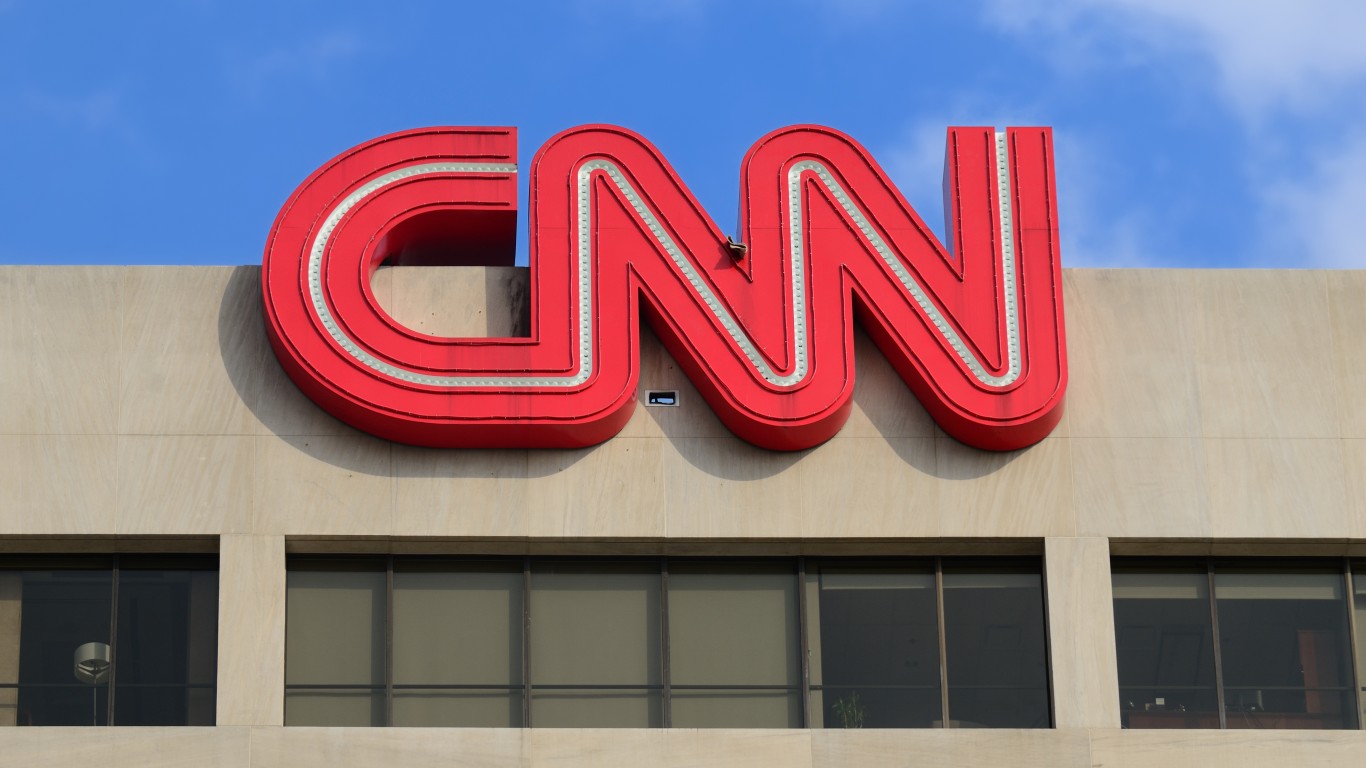
9. CNN and Fox News
Political polarization has been on the rise in the United States for decades and continues to grow. While the precise causes of political division are varied and complex, their consequences are evident not only in the dysfunction in Washington D.C., but also in the media landscape.
Political affiliation is a strong predictor of where people get their news. The common perception is that the mainstream media outlets, such as CNN, have a left-leaning bias, while organizations like Fox News offer conservative a right-leaning bias – and data backs these assumptions. According to a recent report from the Pew Research Center, 70% of Americans who identify as liberal trust CNN for political and election news, and 77% of the same group distrust Fox News. On the flip side, 75% of Americans who identify as conservative trust Fox News for political and election news, and 67% of them distrust CNN.
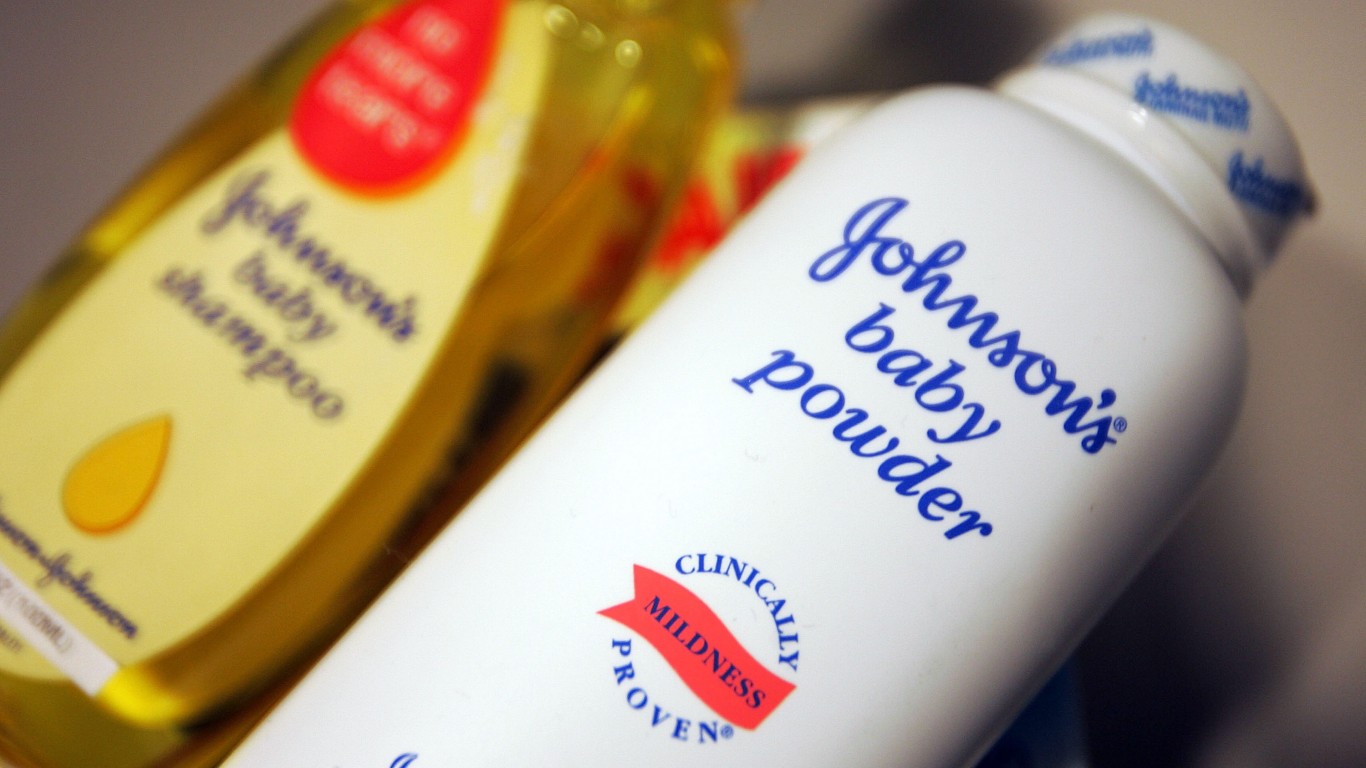
8. Johnson & Johnson
Household product and pharmaceutical giant Johnson & Johnson is perhaps the most recognizable company implicated in a civil suit over the opioid crisis. Under the terms unveiled by a group of states attorneys general, J&J will pay $5 billion to settle claims by states, cities, and counties nationwide. Much of that money will go towards addiction treatment, family support, and education programs.
J&J, along with other companies, including McKesson Corp, Cardinal Health Inc, AmerisourceBergen Corp, Purdue Pharma, and Teva Pharmaceuticals, are implicated in fueling the opioid epidemic, which has claimed the lives of an estimated half a million Americans. Though the company maintains that payments are not an admission of wrongdoing, it has stopped manufacturing and promoting opioid drugs.
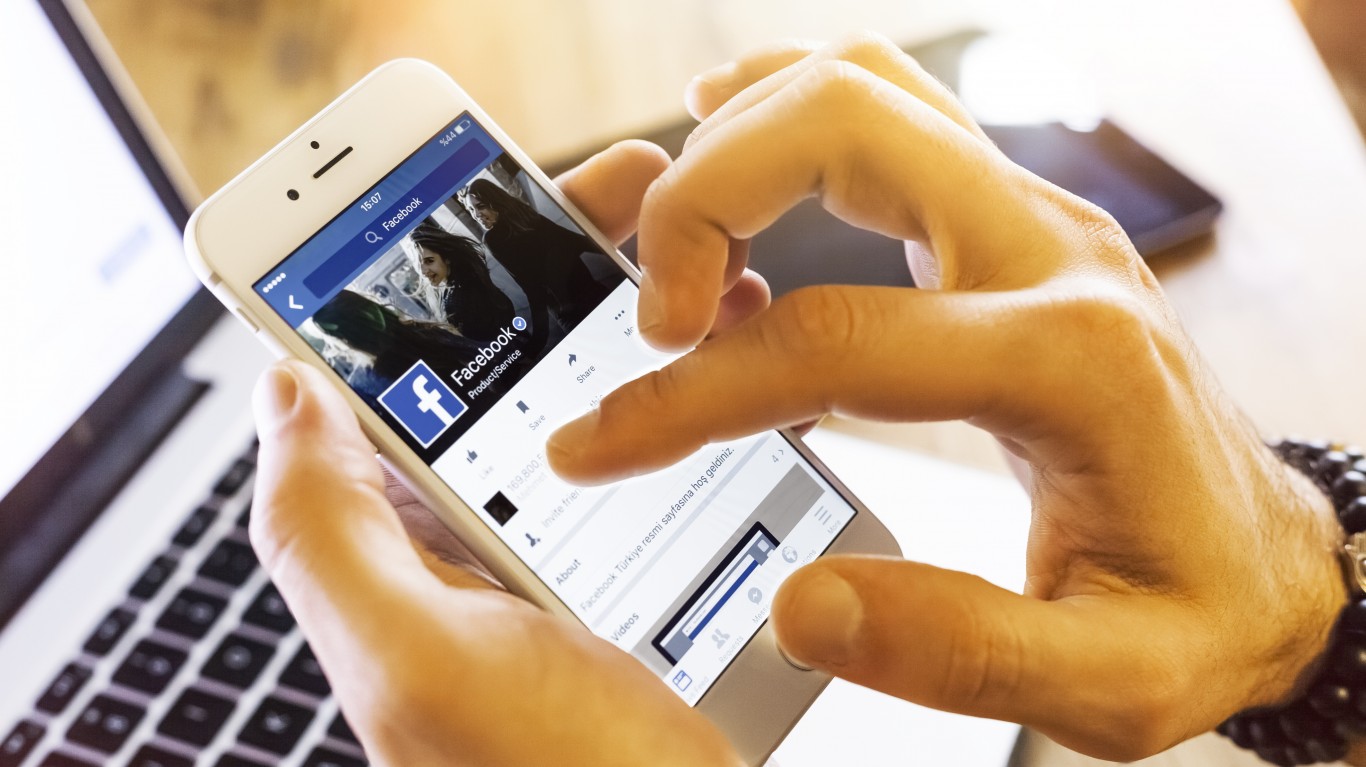
7. Meta Platforms, Inc. (formerly Facebook)
The past year brought yet another public relations disaster for social media behemoth Meta. Publicly, the company, which owns platforms like Instagram and Facebook, has consistently downplayed the potential negative impacts its products have on teenagers. Yet leaked documents and whistleblower testimony revealed that the company has known for years that its products cause considerable harm to the mental health of many users in vulnerable groups — particularly teenage girls. Instagram in particular is contributing to feelings of anxiety and depression among teenagers, and 6% of American and 13% of British users who have suiсidal thoughts trace them back to the photo sharing app.
The company, formerly known as Facebook Inc., had only recently been under intense public scrutiny for its role in the spread of misinformation during the 2016 election and leaked personal information of tens of millions of users without their knowledge or consent.
[in-text-ad-2]
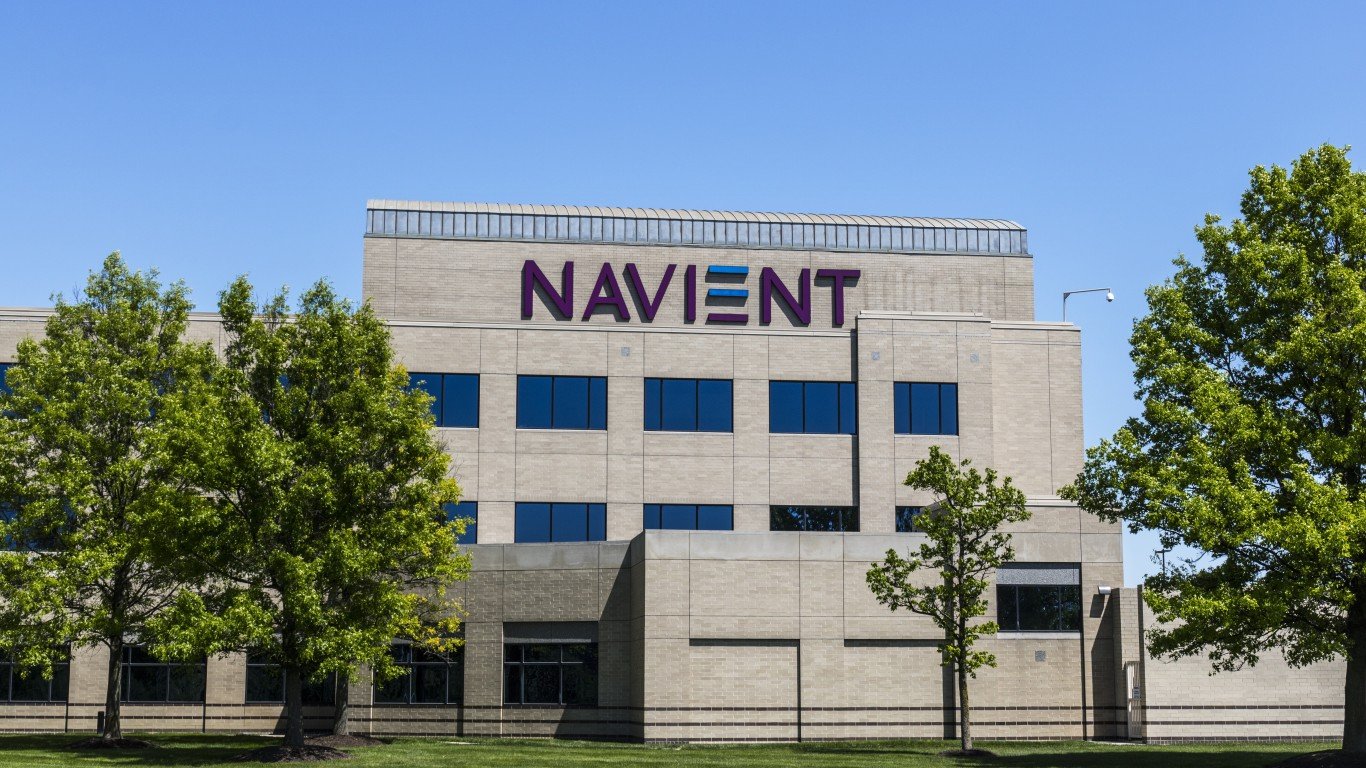
6. Navient Corp.
Student loan giant Navient Corp. is cancelling $1.7 billion in private student loan debt after reaching a settlement with 40 state attorneys general following allegations that the company engaged in deceptive lending practices. The settlement will cancel the debt, and in some cases, pay restitution for some 66,000 borrowers. The costs will be covered by the company’s shareholders.
Allegations brought against the company include charges that it steered borrowers deliberately toward forbearance loan plans that allowed students to stop making payments, even as interest keeps accruing, rather than income-based monthly payment plans. Despite the agreement, Navient continues to deny any wrongdoing.
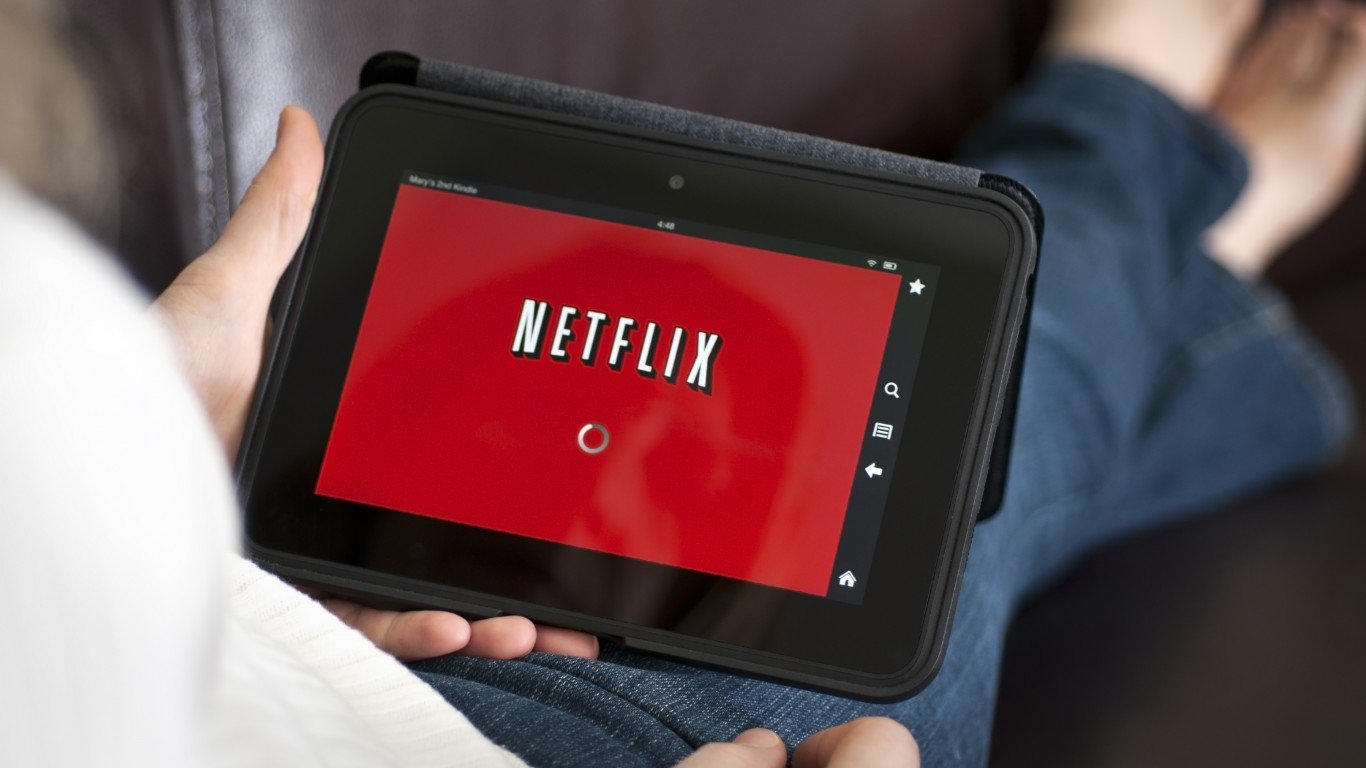
5. Netflix
With over 200 million paying subscribers globally, Netflix is the world’s most popular streaming platform. However, in September 2021, the company alienated some of its customers and upset many of its own employees for its decision to air a stand-up special by funnyman Dave Chappelle. A handful of jokes in the special were widely viewed as transphobic and led Netflix employees to stage a walkout. Netflix spent a reported $24.1 million for the comedy special.
Initially, company CEO Ted Sarandos defended the company’s decision, but he later walked those statements back claiming he “screwed up.” Netflix has not removed the Chappelle set from its platform.
[in-text-ad]
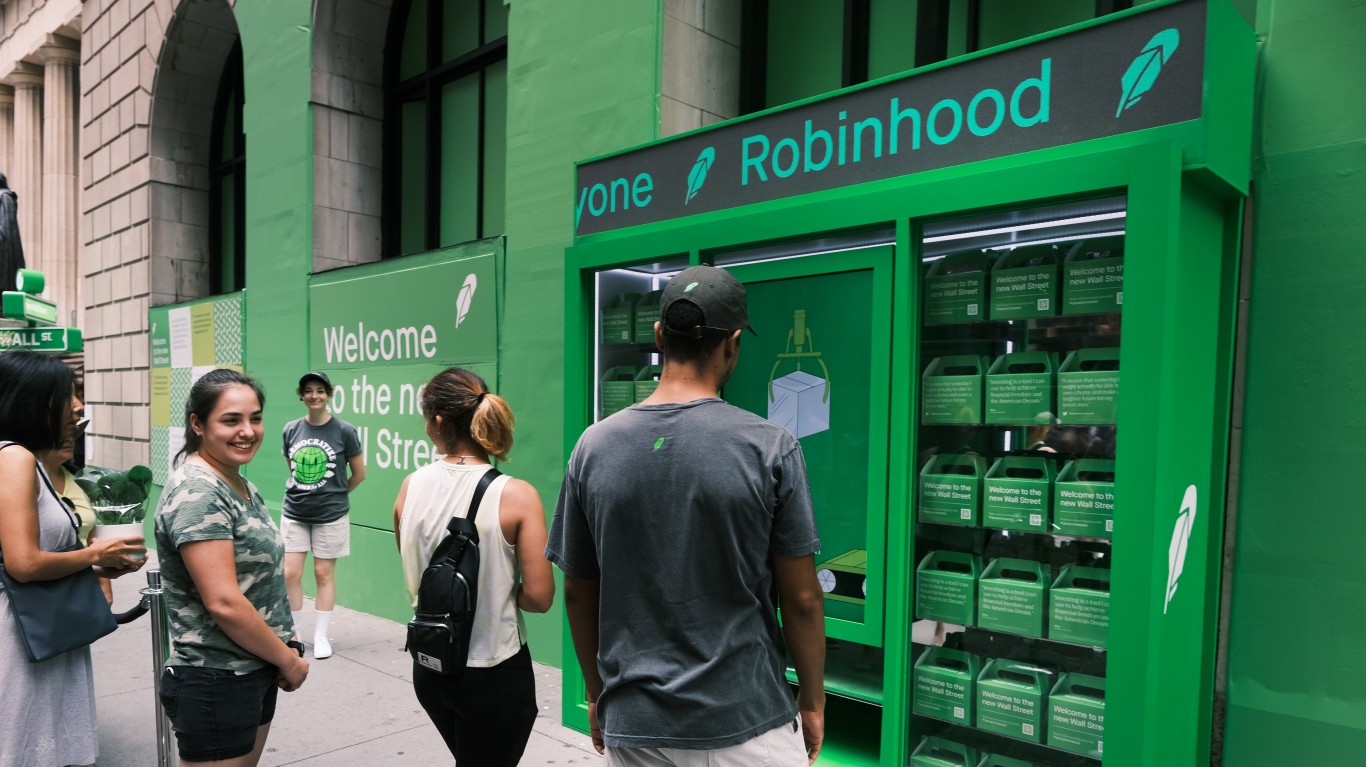
4. Robinhood Markets, Inc.
Stock trading platform Robinhood drew the ire of amateur investors and scrutiny from lawmakers and regulators for actions it took in the midst of a multi-day meme stock frenzy in early 2021. In January of last year, the share price of video game retailer GameStop Corp. spiked by over 700% in a matter of days. The surge in trading, fueled by organized groups of retail investors on Reddit, an online discussion forum, aimed at Wall Street professionals resulted in significant volatility in the stock and led Robinhood to restrict trading on GameStop and several other so-called meme stocks.
Robinhood, which offers users a free trading platform and boasts commission-free transactions, has been drawing in new investors, particularly in younger generations. However, many of those same users were impacted by the trading restrictions, and tens of thousands of them took to the Google Play Store and Apple’s App Store to give the company a one-star review. One user who was barred from trading while his investments were in freefall committed suiсide after the app showed he racked up over $700,000 in losses.

3. Theranos
Nearly four years have passed since blood testing startup Theranos settled fraud charges with the Securities and Exchange Commission and CEO Elizabeth Holmes was indicted. Despite the time that has passed, the company has not likely faded from the memory of the investors who were defrauded out of hundreds of millions of dollars, or the patients who were misled about the product’s ability to accurately analyze blood samples.
Theranos has been back in the headlines in recent months following the trial of Holmes, an entrepreneur who once drew comparisons to Silicon Valley visionaries like Steve Jobs. The case, which spanned several months, ended with Holmes being found guilty on four of 11 federal charges after 50 hours of jury deliberation. Holmes faces a maximum of 80 years in prison. Her sentencing is set for September.
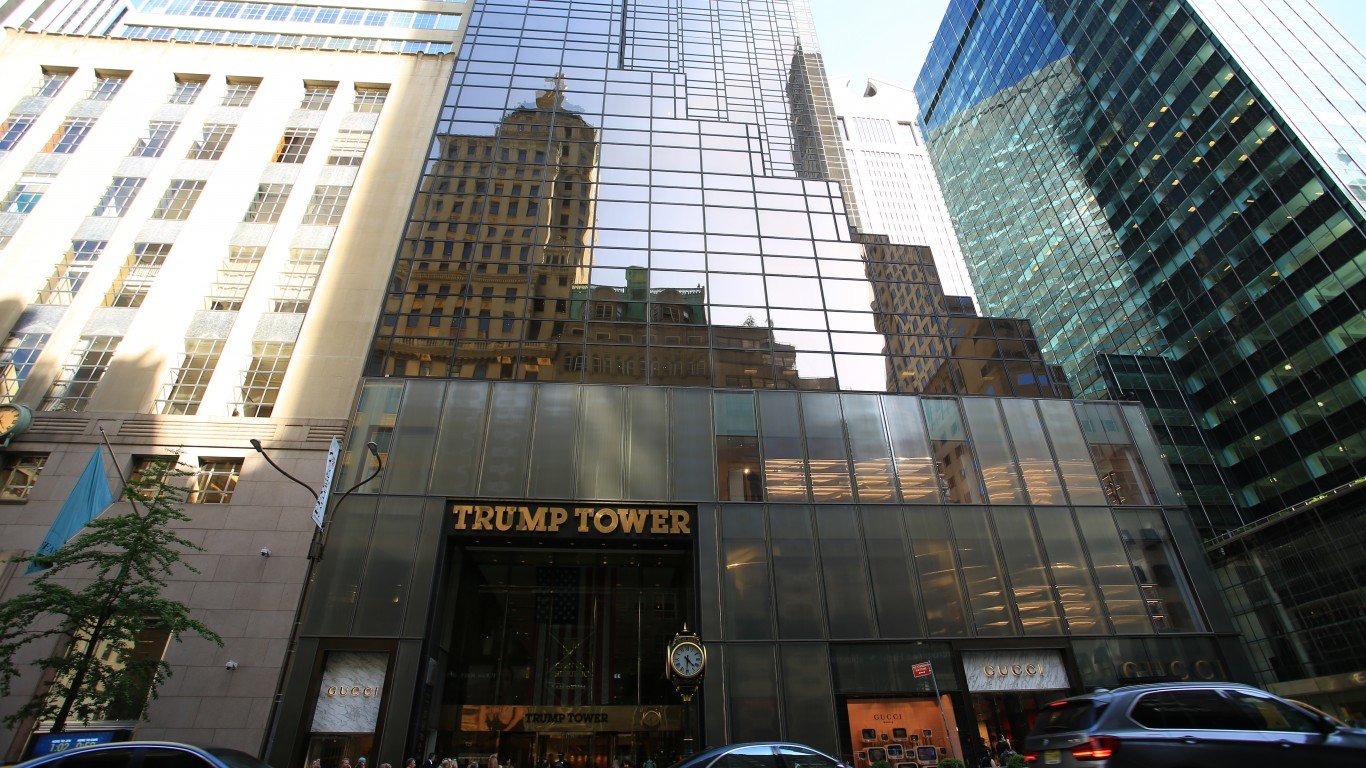
2. The Trump Organization
The Trump Organization is a real estate development company that is hated by many simply because it was established and run by the 45th president of the United States, Donald J. Trump. A controversial leader, Trump’s approval ratings remained at historic lows throughout his single term in office, a period in which he became the only U.S. president in history to be impeached twice.
Though Trump turned the business over to his children when he took office in January 2017, questions surrounding potential conflicts of private and public interest have swirled ever since. Most recently, The Trump Organization has been scrutinized for claiming over £3 million — about $4.1 million in U.S. dollars — in U.K. government furlough money for losses sustained at company-owned golf courses in Scotland. The organization is currently the subject of a fraud investigation at the direction of the New York State attorney general’s office.
[in-text-ad-2]
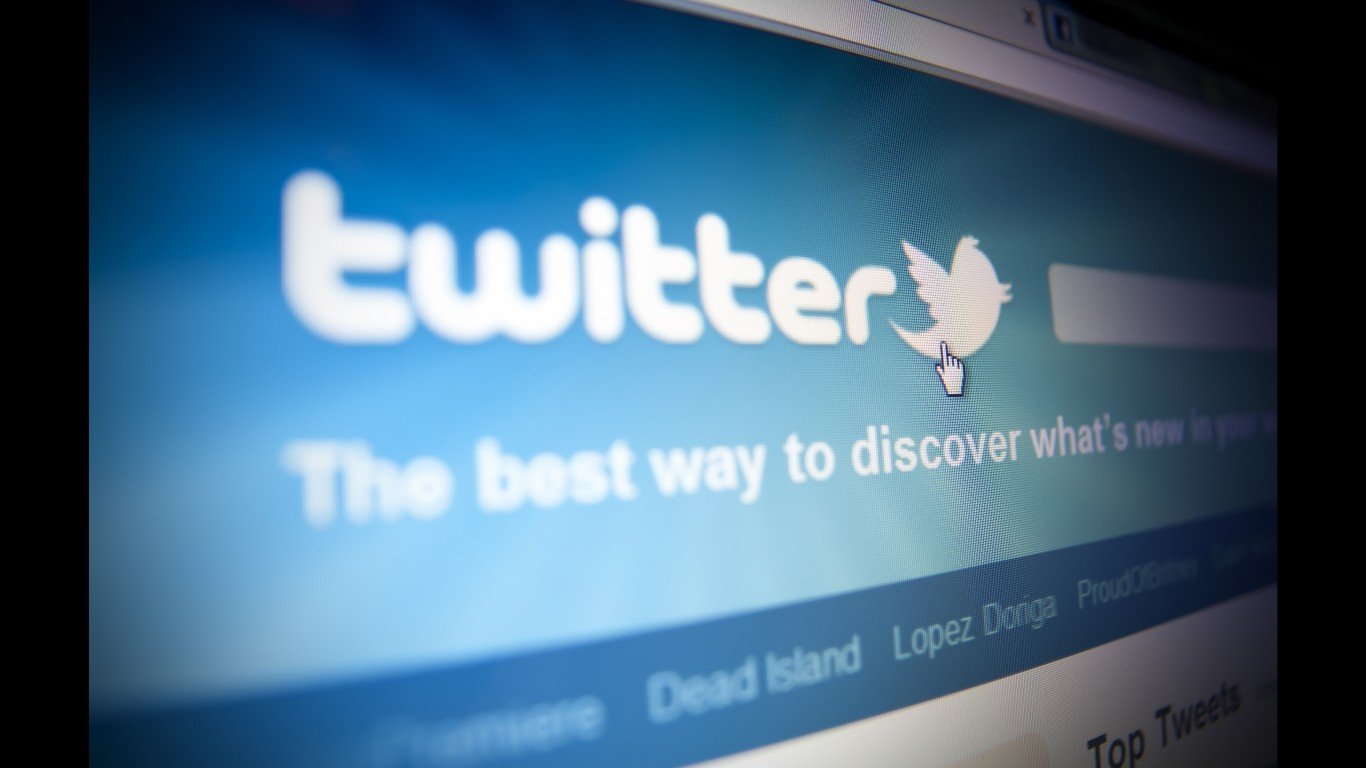
1. Twitter
Few companies have received the level of scrutiny and criticism from both lawmakers and the general public as social media giant Twitter. Widely criticized for being a platform for hateful speech, violent rhetoric, and misinformation, Twitter has struggled to strike a balance between addressing these problems while allowing as much free speech as possible to become the free and safe space to talk it markets itself as.
In addition to criticism for being what many see as a toxic communication platform, many conservatives in the United States take issue with the company’s deplatforming far-right groups and individuals, which some argue is arbitrary and a violation of free speech rights — even though Twitter is a private company. Former President Donald Trump is among those who have been permanently banned from the platform. Twitter banned Trump in the wake of the Jan. 6 storming of the Capitol, saying that his posts were “in violation of the Glorification of Violence Policy.”
Sponsored: Want to Retire Early? Here’s a Great First Step
Want retirement to come a few years earlier than you’d planned? Or are you ready to retire now, but want an extra set of eyes on your finances?
Now you can speak with up to 3 financial experts in your area for FREE. By simply clicking here you can begin to match with financial professionals who can help you build your plan to retire early. And the best part? The first conversation with them is free.
Click here to match with up to 3 financial pros who would be excited to help you make financial decisions.
Thank you for reading! Have some feedback for us?
Contact the 24/7 Wall St. editorial team.
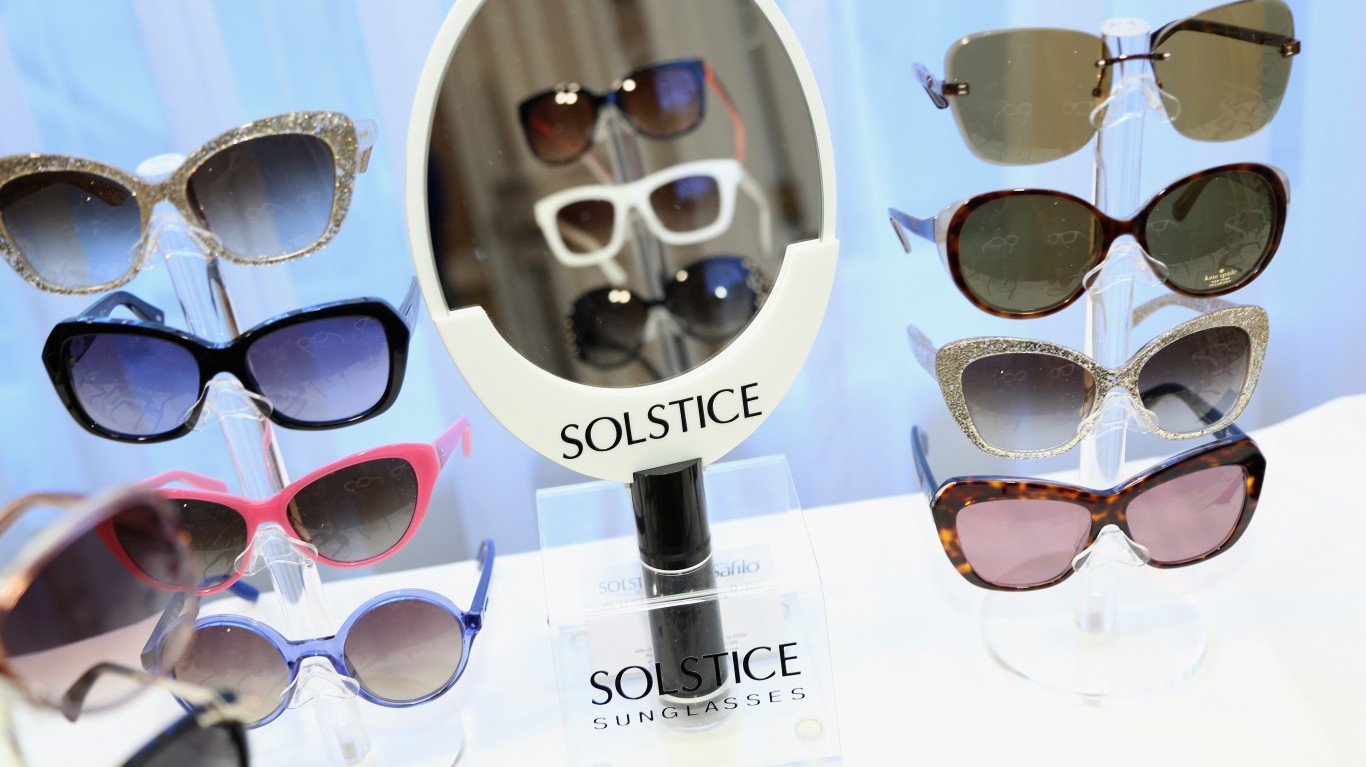 24/7 Wall St.
24/7 Wall St.